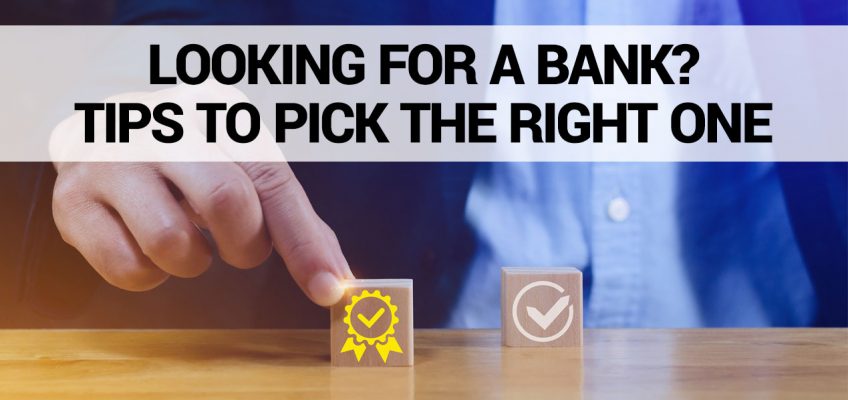Choosing an institution that will secure your money is one of your life’s most important financial decisions. It’s your hard-earned money, so it needs the best security 24/7 and is accessible to you whenever you need it. That said, picking the right bank is essential, but how exactly do you know a bank is perfect?
Banks have a plethora of services they offer; however, these services vary, such as notary services and fees. They also charge different fees and rates; some can be more secure than others. So how do you pick a bank? What are the factors that you should consider? Read on to learn more about how to pick the right bank for you.
Pick What Kind of Account You Want
As mentioned, banks offer different kinds of services, and it can be overwhelming to list them in this article. However, a good place to start your research is to pick what kind of account you want for your money. The most common accounts that most banks have are the following:
- Savings Account
- Checking Account
- Certificates of Deposit
- Money Market Accounts
If you want the vanilla option of a checking out, you might want to pick a big traditional bank for that. You could opt for a high-yield checking account if you want a return investment in the future, which most people opt for.
Often, a bank’s best return rate is a savings account. The return rates differ for each bank, so inquire about them before opening one. Another account that works like a savings account is a money market account. The only difference about this one is that you’ll have check-writing privileges.
Another type of savings-like account is Certificates of Deposit or CD. However, CDs are more commonly used for locking up money for a set amount of time for a guaranteed rate of return. But you’ll pay a fee if you take the money before the account is matured.
Check the Fees
The next factor you should check out when picking a bank is its fees. For example, most banks will charge you a monthly fee for your checking account. However, the amount is not standardized, which means each bank has different amounts of fees that they charge their clients.
Banks also often have criteria that your fees will be waived if you meet them. For example, they might require you to meet a minimum balance requirement.
However, it’s best to know that these requirements vary from bank to bank. To keep these fees to a minimum, know what kind of fees you’ll probably be paying when you create a checking account with a particular bank. Some of the more common charges are as follows:
- Out-of-Network ATM fees
- Overdraft fees
- Stop payment fees
- Statement fees
- Monthly maintenance fees
Interest Rates
Another thing you should check out, especially if you’re looking to save up some money and have an interest on it, is the bank’s interest rate on its savings accounts. The best thing about savings accounts is that they have fewer fees than checking accounts.
Most of the time, you’ll only get charged fees if you frequently withdraw from the account. The main difference between savings and checking accounts is that they have an interest rate on your money over time.
These rates vary from bank to bank, so you pick a high-interest rate. However, often, you can see the best interest rates from online banks and credit unions. Credit unions often give high-interest rates to their members, and the longer you spend time with the credit union as a member, the higher your interest rate will be. On the other hand, online banks have a high-interest rate to entice more people to create an account with them.
If you’re also looking to get a loan from your accounts soon, you should also check their interest rates for loans. Luckily, you don’t have to go to your bank if you think their loan interest rates are too steep. Instead, you can go for an online loan CreditNinja or other lenders offer if you want a lower interest rate on your personal loans.
Go for Accessibility
We need money for our everyday expenses, so having an accessible bank account is best if you’re looking to withdraw money from it every day. That said, if you open an account with a brick-and-mortar bank, ensure a branch is near your residence.
If you travel domestically, pick one with a large network of branches nationwide or even internationally. Online banks, on the other hand, are more accessible since you only need an ATM nearby to withdraw your money.
Final Words
From the interest rates to the accessibility, there are several factors that you need to check first before you create an account in a particular bank. Picking the right one is essential if you want to keep your money secured. That said, make sure to do your research first and see which of your choices is the best fit for your financial situation.

Leave a Reply